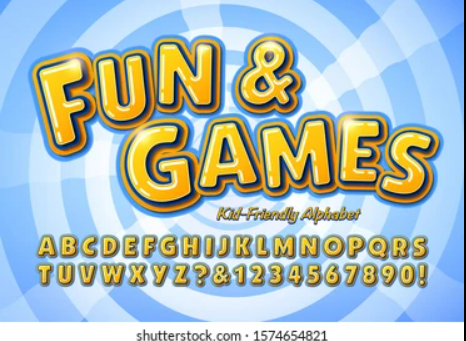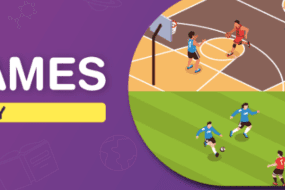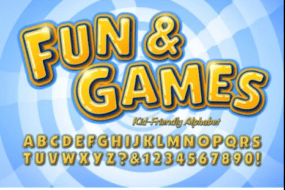
In a fast-paced world where productivity often takes precedence over play, we sometimes forget one of the most vital ingredients to a happy life: fun. Fun and games aren’t just for kids—they’re essential at every stage of life. They bring people together, ease stress, spark creativity, and unlock pure joy. Whether you’re five or eighty-five, incorporating more play into your life can lead to a healthier, more fulfilling existence.
This ultimate guide explores how fun and games evolve through the ages, highlights different types of activities suitable for everyone, and offers practical ways to make joy a priority every day.
Why Fun Matters: The Science of Joy
Play isn’t just a frivolous pastime. Studies have shown that engaging in games and playful activities boosts mental health, increases brain function, and strengthens relationships. According to psychologists, laughter and play reduce cortisol levels (the stress hormone) and trigger the release of dopamine and endorphins—the body’s natural feel-good chemicals.
Fun promotes:
- Creativity: Imaginative play fosters innovation and out-of-the-box thinking.
- Social Bonds: Shared games build trust and deepen connections.
- Mental Flexibility: Puzzles and strategy games enhance cognitive agility.
- Physical Health: Active games improve coordination, fitness, and overall well-being.
In short, fun isn’t optional. It’s necessary. Now, let’s break it down by age to find the best ways to unlock joy at every life stage.
Fun & Games for Kids (Ages 3–12)
For children, play is foundational to development. It’s how they learn, process emotions, and build skills. Games at this age should emphasize creativity, motor skills, and teamwork.
Top Activities:
- Pretend Play: Dressing up, acting out scenarios, and using imagination helps kids develop empathy and storytelling skills.
- Outdoor Games: Tag, hopscotch, hide-and-seek, and scavenger hunts keep kids active while enhancing social interaction.
- Board Games: Candy Land, Guess Who?, and Connect Four introduce kids to rules, turn-taking, and strategic thinking.
- Educational Apps: Tech-based fun can still be beneficial—look for apps that encourage problem-solving, reading, and math in a playful way.
- Arts & Crafts: From finger painting to slime-making, hands-on activities nurture creativity and self-expression.
Pro Tip:
Let kids lead the play. Adults can provide tools and environments, but the best learning comes when children feel free to explore and imagine.
Fun & Games for Teens (Ages 13–19)
Teenagers are navigating complex social worlds and forming identities. Games and playful activities can help them decompress, stay connected, and find purpose.
Top Activities:
- Sports: Team sports like basketball, soccer, or volleyball build confidence and camaraderie.
- Video Games: Games like Minecraft or Mario Kart offer entertainment and can even spark interest in game design or storytelling.
- Creative Hobbies: Music, painting, dance, or DIY projects help teens express themselves and discover passions.
- Tabletop Games: Strategy games like Catan, Uno, or Dungeons & Dragons encourage problem-solving and collaboration.
- Social Games: Charades, Pictionary, and improv games break the ice and foster social comfort.
Pro Tip:
Support their interests—even if their idea of fun looks different than yours. Respecting their choices can open up meaningful conversations and strengthen bonds.
Fun & Games for Adults (Ages 20–59)
Once we reach adulthood, fun often gets pushed to the bottom of the to-do list. But play remains just as vital for mental health, creativity, and stress relief. In fact, scheduling time for fun can make you more productive, not less.
Top Activities:
- Game Nights: Host regular game nights with friends or family—think Cards Against Humanity, Codenames, or Taboo.
- Escape Rooms: Real-life or virtual, these challenge the brain and offer an adrenaline rush.
- Travel & Adventure: Trying a new hiking trail, zip-lining, or exploring a new city can ignite excitement and joy.
- Hobbies: Pick up pottery, gardening, writing, or baking—anything that lets you enter a state of flow.
- Online Games & Mobile Apps: From Wordle to fantasy sports leagues, online games are an easy way to unwind and have fun.
Pro Tip:
Fun doesn’t have to mean “wasting time.” Integrate small moments of joy into your routine—sing in the shower, dance while cooking, or doodle during a break.
Fun & Games for Seniors (60+)
Contrary to the stereotype, fun doesn’t fade with age—it just evolves. Seniors benefit immensely from play, both cognitively and emotionally. Whether it’s reminiscing through music or playing brain-boosting games, staying playful enhances quality of life.
Top Activities:
- Classic Board & Card Games: Bridge, dominoes, Scrabble, and bingo are perfect for social connection and mental sharpness.
- Puzzles & Brain Teasers: Sudoku, crossword puzzles, and logic games help maintain memory and focus.
- Movement-Based Fun: Dance classes, lawn bowling, or water aerobics combine fun with fitness.
- Storytelling Games: Sharing life stories or creating short tales with prompts builds connection and keeps the mind active.
- Digital Games: Tablets and smartphones open access to trivia, solitaire, or memory games tailored to older adults.
Pro Tip:
Incorporate intergenerational play. Grandparents playing games with grandkids creates cherished memories and keeps everyone young at heart.
Universal Games Everyone Can Enjoy
Some games are timeless and transcend age. Here are a few go-to favorites that bring joy to all:
- Charades
- Trivia Quizzes
- Scavenger Hunts
- Karaoke
- Board Game Classics (Monopoly, Jenga, Clue)
- Word Games (Boggle, Scrabble, Wordle)
- Building Games (Lego, Minecraft)
Create traditions around game nights, family tournaments, or “silly Sunday challenges” to keep fun part of your routine.
Virtual Fun: Playing in the Digital Age
Thanks to technology, playing games doesn’t require being in the same room—or even the same country. Virtual games are perfect for remote families, long-distance friends, or solo players looking to connect with others.
Best Digital Platforms:
- Jackbox Games: Perfect for group parties with smartphones as controllers.
- Tabletop Simulator: Play board games virtually with friends across the globe.
- Online Puzzle Portals: Sites like JigZone and Lumosity offer brain challenges for all skill levels.
- Multiplayer Apps: Try Among Us, Heads Up, or QuizUp for a fun time with friends.
Don’t underestimate the power of a virtual laugh session—it’s still just as good for the soul.
Making Room for Fun in Daily Life
You don’t need a full game night to enjoy fun. Here are some micro-ways to add joy into your daily life:
- Start a one-minute dance party
- Leave silly notes around the house
- Play “Would You Rather” during dinner
- Turn chores into challenges
- Make up your own family board game
- Gamify goals (reward points, level-ups, prizes)
The goal? Build a “joy habit.” When fun becomes a mindset, life becomes lighter, even on tough days.
The Role of Laughter
Laughter is the soundtrack of fun. It’s the universal sign that you’re present, engaged, and alive in the moment. Whether it’s a funny story, an absurd game outcome, or a blooper during charades—those moments matter.
Laughter:
- Reduces blood pressure
- Boosts immune function
- Strengthens relationships
- Provides emotional release
Incorporate humor intentionally—watch comedies, follow funny creators online, or just let yourself be silly sometimes. Life’s too short to be serious all the time.
Building a Culture of Play
Whether you’re a parent, teacher, manager, or community leader, creating a culture of play can transform your environment. Teams that play together collaborate better. Families that play together bond more deeply. People who embrace fun live more fully.
Ways to foster a playful culture:
- Have “fun breaks” at work or school
- Celebrate small wins with games
- Encourage spontaneous creativity
- Say yes to silliness
Play isn’t just an activity—it’s a way of seeing the world. A lens of curiosity, joy, and possibility.
Final Thoughts
Fun isn’t childish—it’s life-giving. Games aren’t a distraction—they’re a pathway to connection, creativity, and happiness. No matter your age, there’s a form of play that’s right for you.
So dust off that board game, gather a few friends or family members, or just let yourself laugh at something silly. Your inner child—and your future self—will thank you.






















